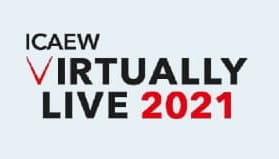The pervasive view of viability statements is that they don’t work. In his review of financial reporting regulation, John Kingman recommended that they be either scrapped or amended to make them more effective.
The Department for Business, Energy and Industrial Strategy (BEIS) has decided to attempt the latter. In its consultation, Restoring Trust in Audit and Corporate Governance, BEIS has proposed a new annual resilience statement that expands on viability statements to create something more detailed and comprehensive. The new statement would set out how directors are assessing the company’s prospects and addressing challenges to its business model over the short, medium and long-term.The short-term section of the statement would incorporate the existing going concern statement, including the disclosure of any material uncertainties considered by management during their going concern assessment.
Existing viability statement requirements would be incorporated in the medium-term section of the resilience statement. The mandatory assessment period would, however, be five years, rather than three. The section of the statement covering reporting over the medium term would also need to evidence scenario planning. The government plans to require companies to include at least two reverse stress testing scenarios.
The proposed statement would also require further disclosures in both the short- and medium-term sections. While some flexibility will be available to allow businesses to report on resilience matters that are most relevant to their individual businesses, common resilience issues, such as supply chain resilience, digital security risks and major disruptive events, may be mandatory inclusions.
The long-term section of the resilience statement would set out what the directors of the company consider to be the major long-term challenges to the company and its business model, and how these are being addressed.
The government is also inviting views on whether resilience statements, including the long-term section, should specifically address the included reporting in accordance with the Taskforce on Climate-Related Financial Disclosures framework.
“We support efforts to improve reporting on resilience and believe the government proposals merit serious consideration”, says Michelle Cardwell, ICAEW’s Technical Manager, Audit, Assurance and Financial Reporting. “There are clear issues over how viability is reported currently and the pandemic has shown that there's an appetite for some more robust reporting and scenario planning.”
The detail needs to be explored further, however, says Cardwell. “Any mandatory information might add to comparability, but it needs to have a clear purpose, and should be meaningful for all companies reporting on resilience. Universal indicators such as cash flow could be included, but there needs to be a degree of flexibility to allow different sectors to report in a meaningful way. Including information on reverse stress testing in particular is likely to be helpful.”
ICAEW’s Audit and Assurance Faculty has written guidance on going concern and reverse stress testing that emphasises the importance of creating meaningful, purposeful disclosures. The Faculty is interested in views from members on how the proposed resilience statements could function effectively. Members interested in sharing their views and suggestions for how resilience statements could work in practice should email TDAF@icaew.com.
ICAEW Know-How from the Audit and Assurance Faculty
This guidance is created by the Audit and Assurance Faculty – recognised internationally as a leading authority and source of expertise and know-how on audit and assurance matters. Join the Faculty to connect with like-minded professionals and gain access to essential guidance and technical advice.




